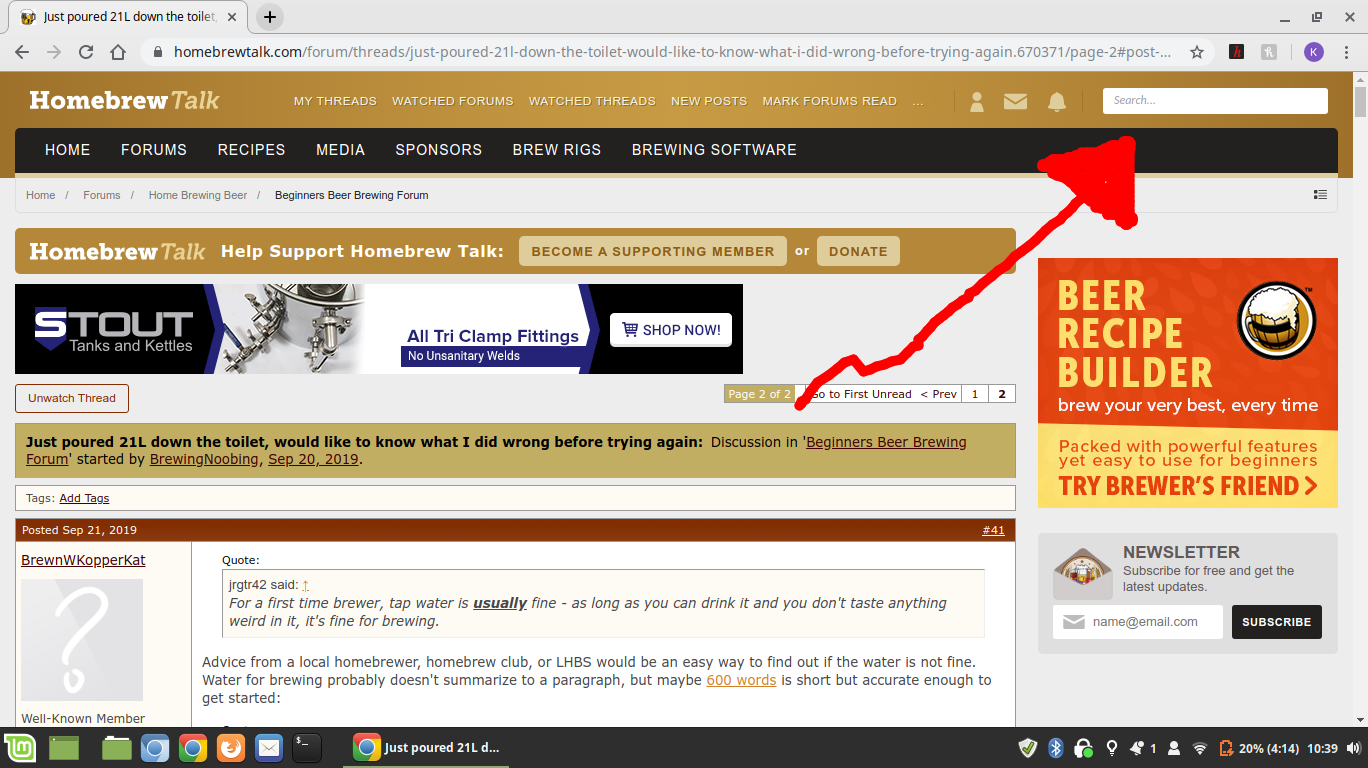You are correct. I do not know what happen to the second half of my post; I said to use spring water, so it has minerals already in it. This should be "OK" for a pale ale, which most people seem to brew first, like OP.
I can imagine kits for all-grain that would include a small packet containing water adjustments; all the new brewer would have to do is provide RO water. But nobody does that. Specifying mineral water for a specific type of beer is along those lines.
But you need more that RO or distilled water. I think the scope of water chemistry should not be in the bailiwick of a first time brewer. There has to be some easier solution.
I'm still trying to figure out water chemistry.

It also depends on whether it's an all-grain or extract brew. RO would be OK for an extract brew, it's when new brewers are doing all-grain that this breaks down.
And that in itself is an issue. I don't believe new brewers should start with all-grain unless they're being guided by someone. Start with extract for a few, learn the process from the boil forward, then work back to making wort once that's done.
I taught a new brewer friend how to brew all-grain from the get-go, but I made all the decisions and he just focused on process. The first time I brewed and he watched, the second time he brewed and I watched (and offered corrections where necessary), the third time he did it alone, though I had about 5 texts and one phone call during.

But he wasn't doing anything about water additions other than adding what I told him to add.
Not that it's impossible for newbies to do all-grain at the outset, but it's not the way to bet, IMO. That's where I started, and even then those beers weren't great.
So I agree with you--there should be some way to guide new brewers to success very early, reduce the complications like water chemistry, and so on.




![Craft A Brew - Safale BE-256 Yeast - Fermentis - Belgian Ale Dry Yeast - For Belgian & Strong Ales - Ingredients for Home Brewing - Beer Making Supplies - [3 Pack]](https://m.media-amazon.com/images/I/51bcKEwQmWL._SL500_.jpg)























































